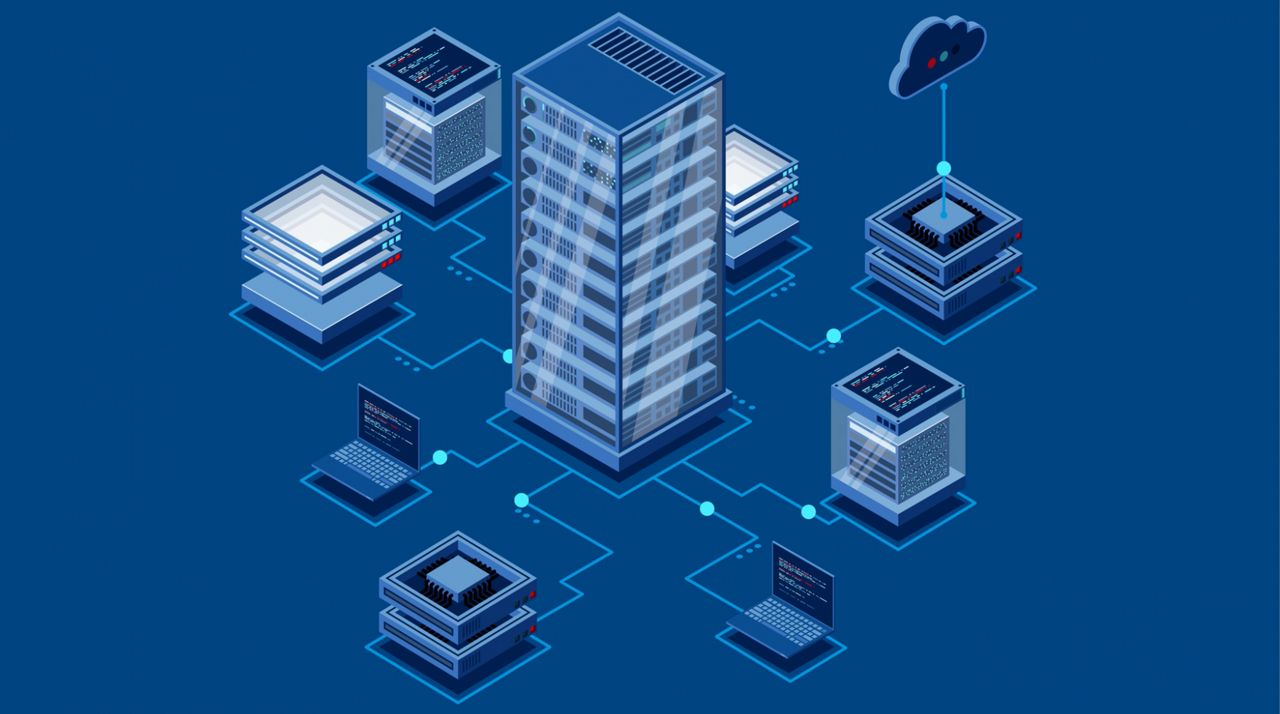What’s the Difference?

On-Premise Solutions
On-premise solution setups have long been the traditional approach for hotel technology, which involves hosting software and data locally on servers physically located at a property. The main advantage of this option is that it offers maximum control over system access and security. Another benefit is the enhanced resilience of on-premise solutions and the fact that a permanent online connection is not required to function. This notably makes such systems less vulnerable to being disrupted by internet service outages or malfunctioning network equipment.
Yet at the same time, this approach also demands greater responsibility, as hoteliers will be tasked with ensuring that software updates and hardware maintenance are kept up with. This also often involves operations experiencing downtime as upkeep-related tasks are carried out. On-premise solutions further limit the ability for properties to keep pace with advances in technology, which frequently requires a complete replacement of hardware and an overhaul of existing infrastructure. Yet for properties with limited internet reliability, on-premise platforms may still be the most practical choice.
Cloud Solutions
Cloud-designed systems are hosted entirely offsite on remote servers managed by solution providers and are accessed via the internet. For hotels, leveraging solutions that exist within the cloud typically means lower infrastructure requirements, easier scalability, and the ability to manage operations remotely. With no onsite hardware or stationary terminals required, staff can often access and manage cloud-based solutions on the go using a mobile device. From access and energy management to housekeeping, maintenance and guest request tracking solutions, cloud accessible solutions can significantly reduce completion times and streamline daily operations, ultimately resulting in higher quality guest service and cost savings.
Cloud-based solutions can be deployed using either public or private cloud infrastructure. A public cloud approach can offer broader scalability and lower costs but can also result in increased concerns over data privacy. Alternatively, leveraging a private cloud may provide more security and customization but it also can translate into a higher investment and increased need for management.
Although the online nature of cloud platforms may typically mean exposure to cyber risks, a reputable solutions provider will always ensure to deploy the latest protections. Examples including automatically installing software patches with new encryption standards or that address a potential vulnerability. Patches can also be released to deploy a new feature or facilitate integrations with third-party platforms. The more flexible design also offers a more seamless and straightforward route for hoteliers aiming to deploy AI-enabled platforms and services. These types of advantages are especially attractive for properties that aim to stay ahead of new industry trends and guest preferences while keeping expenses to a minimum.
Another key advantage is the ability for cloud-based systems to dramatically shorten the timeline for onboarding newly acquired hotels. With brand mergers and acquisitions being increasingly common, the ability to migrate a property’s operations and guest-facing technology to a new brand standard in a matter of days instead of weeks or months is a major asset. Cloud-based deployments eliminate the need for time-consuming hardware installations and allow centralized teams to swiftly push configurations, access credentials, and system updates remotely, ensuring seamless continuity of service with minimal disruption.
Thanks to the ability to allow centralized management, cloud platforms can further eliminate the need to configure and monitor multiple standalone systems, which can be a challenge for brands operating a wide variety of properties. The technology’s centralizing abilities also facilitates the aggregating of data across multiple locations, providing organizations with the comprehensive and precise analytics required for informed decision-making. These types of benefits are just some of the main reasons why as many as 96 percent of hotel software buyers are seeking out cloud alternatives.
Hybrid Platforms
Hybrid-enabled solutions essentially combine elements of both cloud and on-premise technology. Data may exist within a private cloud network or in on-premises hardware, while computing resources are handled by third-party public cloud servers. An example of where this approach might be used could be for safeguarding sensitive data by restricting its location to private onsite servers, while non-sensitive system tasks are carried out remotely via a public cloud. As with fully onsite solutions, hybrid platforms may likewise provide enhanced resilience and service continuity if designed to function even if communication with the central cloud server is lost. As this strategy involves a need to make a greater investment in onsite hardware which needs to be maintained, taking a hybrid approach should be considered on a case-by-case basis depending on which hotel operations are involved and the specific needs or goals of a property.
| Criteria | Cloud | On-Premise | Hybrid |
| Initial Cost | Low – minimal hardware investment | High – requires significant upfront hardware and setup | Medium – reduced cloud costs but still requires local hardware investment |
| Scalability | High – easily scaled across properties or regions | Low – scaling often requires new hardware | Medium – can scale selectively depending on system architecture |
| Local Control | Low – managed by provider, centralized configuration | High – full control over all components | High (partial) – critical systems may be locally hosted, others cloud-managed |
| Maintenance | Provider-managed – includes automatic updates and patches | Self-managed – requires internal staff or service calls | Shared – onsite systems may require maintenance; remote systems updated by provider |
| Best Fit For | Smaller hotels or groups needing fast deployment and mobility | Hotels with legacy infrastructure or unreliable connectivity | Properties seeking flexibility or with mixed infrastructure and compliance needs |
| Connectivity Required | Always – real-time and continuous access required for full functionality | Not required – operates independently of internet | Depends on design – mission-critical systems may be independent and can funtion if connectivity is disrupted |
Why Hoteliers Should Care About Their IT Infrastructure Strategy
While determining how to deploy hotel technology may come down to preference, operational goals, or technical requirements, deciding on cloud, on-premise, or hybrid undoubtably offers distinct advantages depending on a property’s circumstances. Understanding the strategic implications of each is critical to making informed decisions that align with long-term business objectives.
Enhanced Monitoring and Efficiency
Cloud and hybrid systems can enable remote diagnostics, centralized monitoring, and real-time data insights, improving responsiveness while minimizing disruptions. However, on-premise solutions may still appeal to properties that require full control over infrastructure or have regulatory constraints.
Cost Control
Cloud models typically follow a subscription-based pricing structure that can offer financial predictability and reduced upfront costs. On the other hand, hotels with significant legacy infrastructure may find it more cost-effective to optimize their existing on-premise systems.
Guest Experience
Regardless of the hosting model, system reliability is essential. Many hoteliers now prioritize platforms that offer proactive performance monitoring and rapid response times to reduce operational downtime and protect the guest experience.
Finding the Right Fit for Your Hotel
Since there is no universal blueprint for hotels to follow regarding their IT hosting strategies, industry professionals should instead evaluate their own needs based on several factors:
- Property size and scale: Smaller boutique hotels may thrive with fully cloud-based systems, especially if agility and simplicity are top priorities. Larger resorts or those with complex infrastructure needs might benefit from a hybrid model for certain operations where both enhanced control and adaptability are desired.
- Existing infrastructure: Hotels with legacy systems or substantial past investments in server hardware may prefer to continue with on-premise deployments or transition gradually to minimize potential disruptions.
- Geographical and regulatory considerations: Properties in regions with limited internet connectivity or stringent data sovereignty laws might need localized solutions, even if other aspects of their operations can function in the cloud.
- Brand and ownership alignment: For multi-property operators or those under franchise agreements, the need for consistency and scalability often favors cloud or hybrid models that support centralized configuration and cross-property oversight.
As technology continues to evolve, how hotels host and manage their systems is becoming just as important as the systems themselves. Cloud, on-premise, and hybrid solutions each offer distinct advantages, and the best approach often depends on a property’s unique mix of size, goals, and legacy systems.





